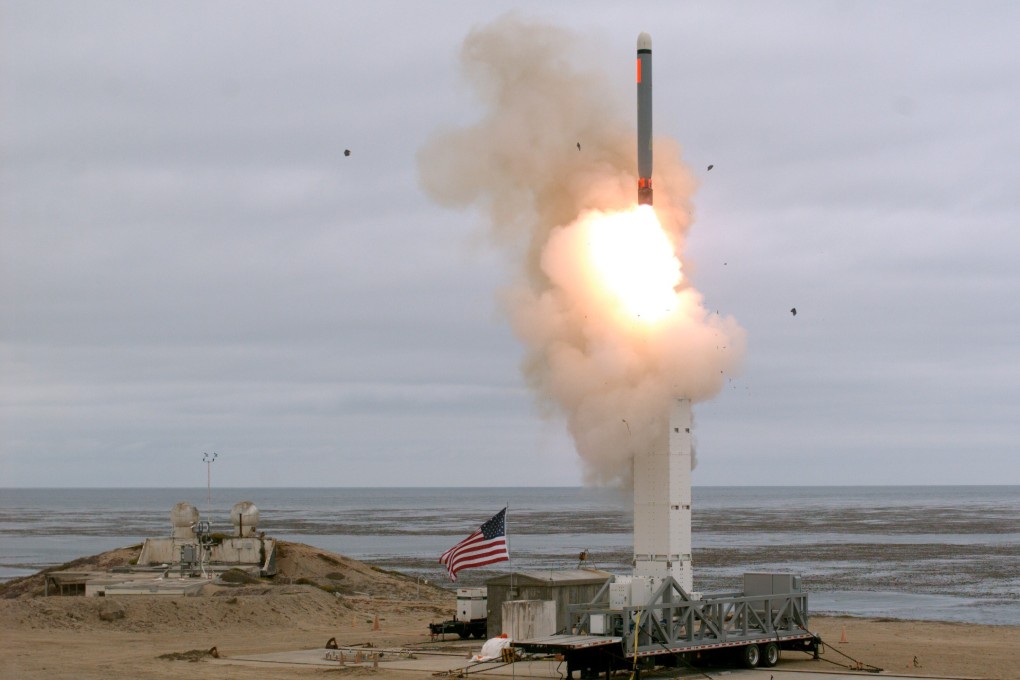China and Russia to raise US ‘threat to peace’ at UN Security Council meeting
- Analysts fear a new arms race is looming with US withdrawal from cold war nuclear treaty

China and Russia have called on the United Nations Security Council to address US withdrawal from a landmark cold war-era nuclear treaty, citing “threats to international peace and security”.
In a rare move, Beijing and Moscow requested that a meeting on Thursday of the 15-member council discuss “statements by US officials on their plans to develop and deploy medium-range missiles” in the wake of Washington’s withdrawal from the Intermediate-Range Nuclear Forces (INF) Treaty.
UN undersecretary general and high representative for disarmament affairs Izumi Nakamitsu will brief the meeting, which follows Sunday’s intermediate-range cruise missile test by the United States, its first since pulling out of the treaty which it signed with the former Soviet Union in 1987.
For China and Russia, the missile test was the latest in a series of provocative moves by the US, which has also pledged to deploy new missiles in the Asia-Pacific region.
Observers said it was unusual for China and Russia to openly attack the US – a fellow permanent member of the Security Council – and the move was intended to send a message to other nations, especially in Asia, that they should not host any new US missile system.